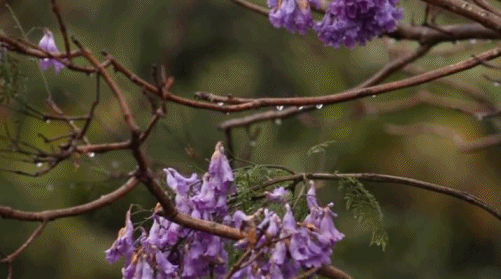
By Ajahn Chah
Some people die, some people almost die — that’s how it is to be stuck in the way of the world. Worldly wisdom seeks after the senses and their objects. However wise it is, it’s only wise in a worldly sense. No matter how appealing it is, it’s only appealing in a worldly sense. However much happiness it is, it’s only happiness in a worldly sense. It isn’t the happiness of liberation; it won’t free you from the world.
We have come to practice as monks in order to penetrate true wisdom, to rid ourselves of attachment. Practice to be free of attachment! Investigate the body, investigate everything around you until you become weary and fed up with it all and then dispassion will set in. Dispassion will not arise easily however, because you still don’t see clearly.
We come and ordain — we study, we read, we practice, we meditate. We determine to make our minds resolute but it’s hard to do. We resolve to do a certain practice, we say that we’ll practice in this way — only a day or two goes by, maybe just a few hours pass and we forget all about it. Then we remember and try to make our minds firm again, thinking, “This time I’ll do it right!” Shortly after that we are pulled away by one of our senses and it all falls apart again, so we have to start all over again! This is how it is.
Like a poorly built dam, our practice is weak. We are still unable to see and follow true practice. And it goes on like this until we arrive at true wisdom. Once we penetrate to the Truth, we are freed from everything. Only peace remains.
Our minds aren’t peaceful because of our old habits. We inherit these because of our past actions and thus they follow us around and constantly plague us. We struggle and search for a way out, but we’re bound by them and they pull us back. These habits don’t forget their old grounds. They grab onto all the old familiar things to use, to admire and to consume — that’s how we live.
The sexes of man and woman — woman cause problems for men, men cause problems for women. That’s the way it is, they are opposites. If men live together with men, then there’s no trouble. If women live together with women, then there’s no trouble. When a man sees a woman his heart pounds like a rice pounder, “deung, dung, deung, dung, deung, dung.” What is this? What are those forces? It pulls and sucks you in — no one realizes that there’s a price to pay!
It’s the same in everything. No matter how hard you try to free yourself, until you see the value of freedom and the pain in bondage, you won’t be able to let go. People usually just practice enduring hardships, keeping the discipline, following the form blindly and not in order to attain freedom or liberation. You must see the value in letting go of your desires before you can really practice; only then is true practice possible.
Everything that you do must be done with clarity and awareness. When you see clearly, there will no longer be any need for enduring or forcing yourself. You have difficulties and are burdened because you miss this point! Peace comes from doing things completely with your whole body and mind. Whatever is left undone leaves you with a feeling of discontent. These things bind you with worry wherever you go. You want to complete everything, but it’s impossible to get it all done.
Take the case of the merchants who regularly come here to see me. They say, “Oh, when my debts are all paid and property in order, I’ll come to ordain.” They talk like that but will they ever finish and get it all in order? There’s no end to it. They pay up their debts with another loan, they pay off that one and do it all again. A merchant thinks that if he frees himself from debt he will be happy, but there’s no end to paying things off. That’s the way worldliness fools us — we go around and around like this never realizing our predicament.
Link source


















